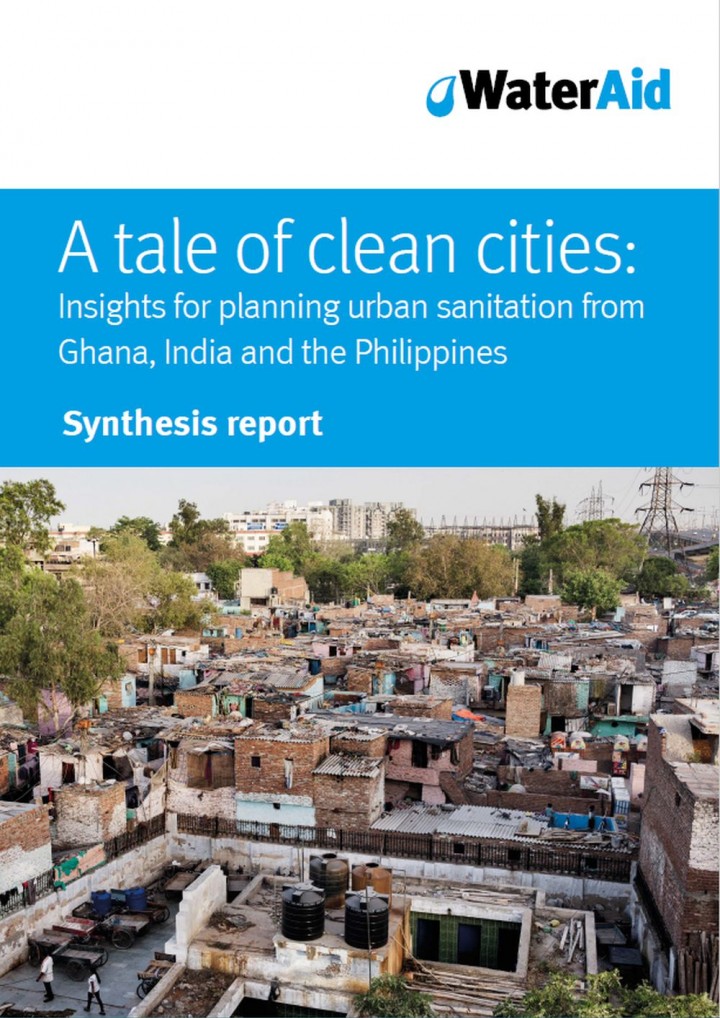A tale of clean cities: Insights for planning urban sanitation from Ghana, India and the Philippines Tiberghien, J.-E. et al. (2016)
Uncontrolled urbanisation and proliferation of slums makes development of urban sanitation a big challenge. To contribute to the efforts towards the Sustainable Development Goal (SDG) target of universal access to sanitation, the research A tale of clean cities aimed to learn from three cities that are performing well in sanitation: Kumasi, Ghana; San Fernando, the Philippines; and Visakhapatnam, India.
Findings showed substantial but uneven progress along segments of the sanitation chain, and that the urban poor and those who live in challenging areas are being left behind. Common drivers of progress were: sanitation champions at the municipal level; national political influence; economic considerations; and support from development partners. Progress resulted from emerging opportunities; city sanitation planning was not a key determinant. However, planning exercises did make meaningful contributions, such as forging an aspirational vision of a clean city. These positive contributions were diverse, dependent on the level of development of sanitation in the city. The research suggests this development could be structured into three phases: piloting; consolidation; and city-wide expansion. Approaches to city sanitation planning could be tailored to these phases and to political opportunities to maximise their contribution. On the basis of lessons learned, recommendations for development agents aiming to contribute to city-wide sanitation progress are to:
1. Nurture sanitation champions at the municipal level.
2. Influence national governments to improve financing and benchmark cities’ performances.
3. Provide technical support for innovation, technical capacity building, monitoring, and learning.
4. Provide financial support that leverages further investments and catalyses change.
5. Be prepared to seize opportunities for change as they arise.
6. Contribute to building a wide-ranging platform for collaboration.
7. Promote city-wide political narratives that highlight universal access, ensuring inclusion of poor people. Recommendations for city planners and others involved in city sanitation planning are to:
8. Promote local ownership of city sanitation planning, linking it to funding opportunities and budgeting processes.
9. Think of city sanitation planning as a process with many functions, including developing
a common aspirational vision for the city.
10. Adapt their approach to planning to the city’s phase of sanitation development and to political opportunities for change.
11. Approach city sanitation planning as an iterative learning process, with a long-term vision
and a short-term actionable strategy that is regularly renewed.
Bibliographic information
Tiberghien, J.-E. et al. (2016). A tale of clean cities: Insights for planning urban sanitation from Ghana, India and the Philippines WaterAid
Filter / Tags
Urban (entire city)Politicians and local decision makersEnglish
Downloads
A tale of clean cities: Insights for planning urban sanitation from Ghana, India and the Philippines
Type: application/pdf
Size: 3.59 MB

